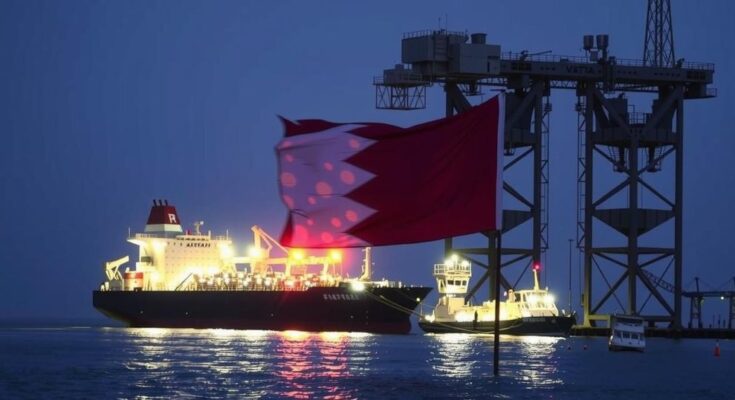Qatar has indicated it will cease gas sales to the EU if fined under a new due diligence law addressing forced labor and environmental issues. The penalties could reach 5% of a company’s global revenue, significantly impacting QatarEnergy’s funds. CEO Saad Sherida al-Kaabi stated such losses are unacceptable, emphasizing the link between the company’s revenues and the Qatar state. As competition from the U.S. grows, Qatar seeks to expand its LNG production capacity significantly by 2027.
Qatar has expressed its intent to halt natural gas sales to the European Union should it be penalized under the EU’s proposed due diligence law, as reported by the Financial Times. This legislation mandates an investigation into supply chains regarding the use of forced labor and environmental harm, with fines potentially reaching 5% of a company’s worldwide revenue. Saad Sherida al-Kaabi, Chief Executive of QatarEnergy, emphasized that such financial repercussions would significantly impact national revenue, as QatarEnergy’s earnings are intertwined with the state’s financial matters. Kaabi firmly stated, “If the case is that I lose 5% of my generated revenue by going to Europe, I will not go to Europe. I’m not bluffing. 5% of generated revenue of QatarEnergy means 5% of generated revenue of the Qatar state. This is the people’s money, so I cannot lose that kind of money – and nobody would accept losing that kind of money.” This stance highlights Qatar’s critical position within the global liquefied natural gas (LNG) market. In light of increased competition from the United States, the country aims to expand its LNG production capacity significantly by 2027, growing from 77 million tons to 142 million tons annually. Kaabi also asserted that Qatar does not anticipate issues arising from U.S. policy changes under President-elect Donald Trump regarding LNG exports.
The European Union’s due diligence law aims to ensure that businesses operating in Europe are accountable for their supply chains, ensuring ethical practices concerning labor and environmental standards. The financial implications of this law are substantial, targeting penalties that could deter international trade relationships. Qatar, as one of the world’s leading LNG exporters, is particularly vulnerable to such regulations, which could affect its lucrative trade with Europe amid intensifying competition from U.S. suppliers. The geopolitical landscape surrounding energy imports is rapidly evolving, underscoring Qatar’s need to safeguard its financial interests while adhering to international regulations.
In summary, Qatar has made it clear that it will reconsider its energy sales to the European Union if faced with significant fines under the EU’s due diligence law. The implications of such regulations could challenge QatarEnergy’s profitability and, by extension, the state’s revenue. As the country seeks to enhance its market presence globally, the future of its LNG exports may depend on balancing compliance with the protection of its financial framework. Qatar aims to overcome these challenges while aiming to increase its LNG production capabilities, signaling its commitment to maintaining a strong role in the energy sector.
Original Source: economictimes.indiatimes.com




